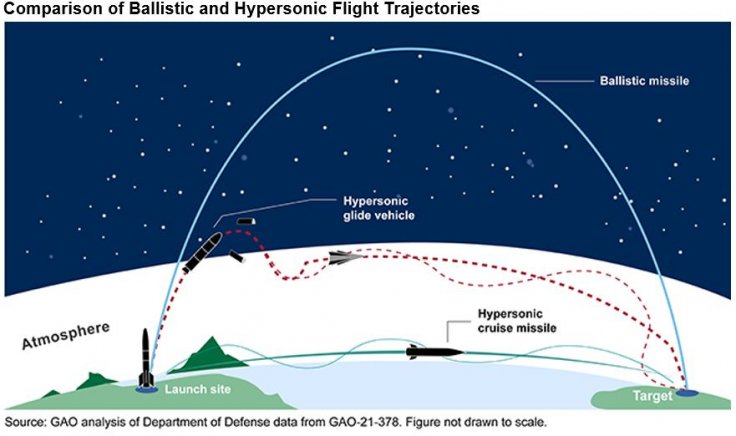The Government Accountability Office (GAO) released a report on Thursday calling out the US Missile Defense Agency (MDA) for failing to take necessary steps to lessen technology risks prior to the development of counter-hypersonic weapons.
Often referred to as the "congressional watchdog," the GAO specifically underlined the MDA's attempts to tackle hypersonic threats like the Glide Phase Interceptor (GPI) and Hypersonic and Ballistic Tracking Space Sensor (HBTSS), in the report.
The investigative arm of Congress however, noted that the MDA not only failed to utilize an appropriate strategy to reduce risks but also could not guarantee supervision from the Department of Defense (DOD) or from the stakeholder involvement, the GAO states.

Addressing the development of GPI, a missile created to target and attack a hypersonic weapon at the speed of at least Mach 5, the report mentions that there was no technological risk assessment conducted to ascertain the 'maturity' of the technologies before advancing with the creation of the Glide Breaker.
GAO recommended that MDA should opt for more technology assessments and independent cost for GPI. In case of the HBTSS, the independent agency highlighted the MDA's shortcomings in collaborating with the US Space Development Agency and Space Force as the entire program is built on coming up with space-based sensors to 'track' hypersonic weapons.

The report concluded that, even though the Missile Defense Agency has made significant progress in fiscal year 2021, it failed to achieve its objectives for 'asset deliveries and testing'.
For instance, while the MDA was successful in conducting developmental and operational cybersecurity testing for the Missile Defense System, it failed to organize a planned system-level cybersecurity test.
This negligence not only left the MDA with zero knowledge of system vulnerabilities but also hugely contributed to programmatic delays.









